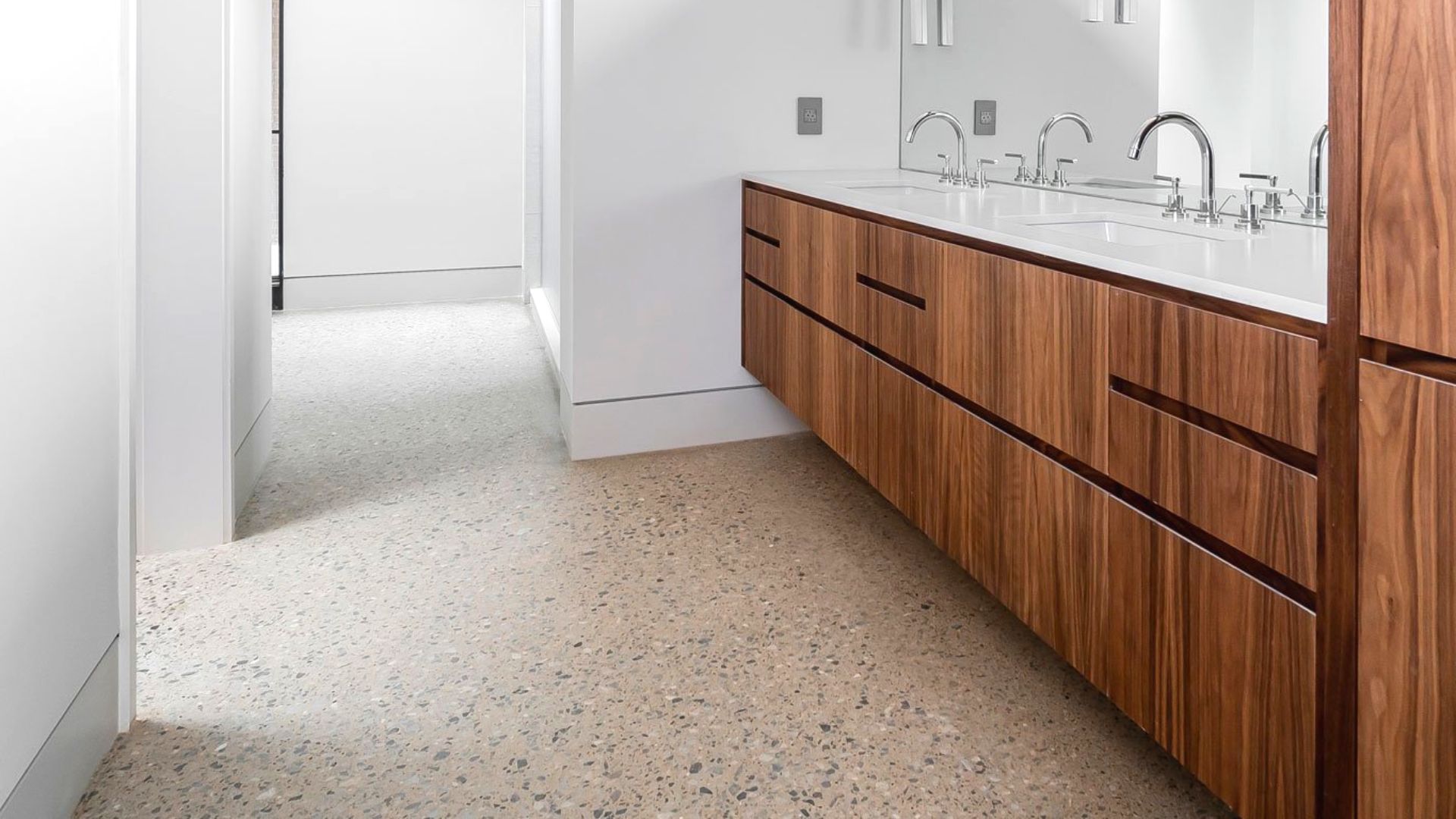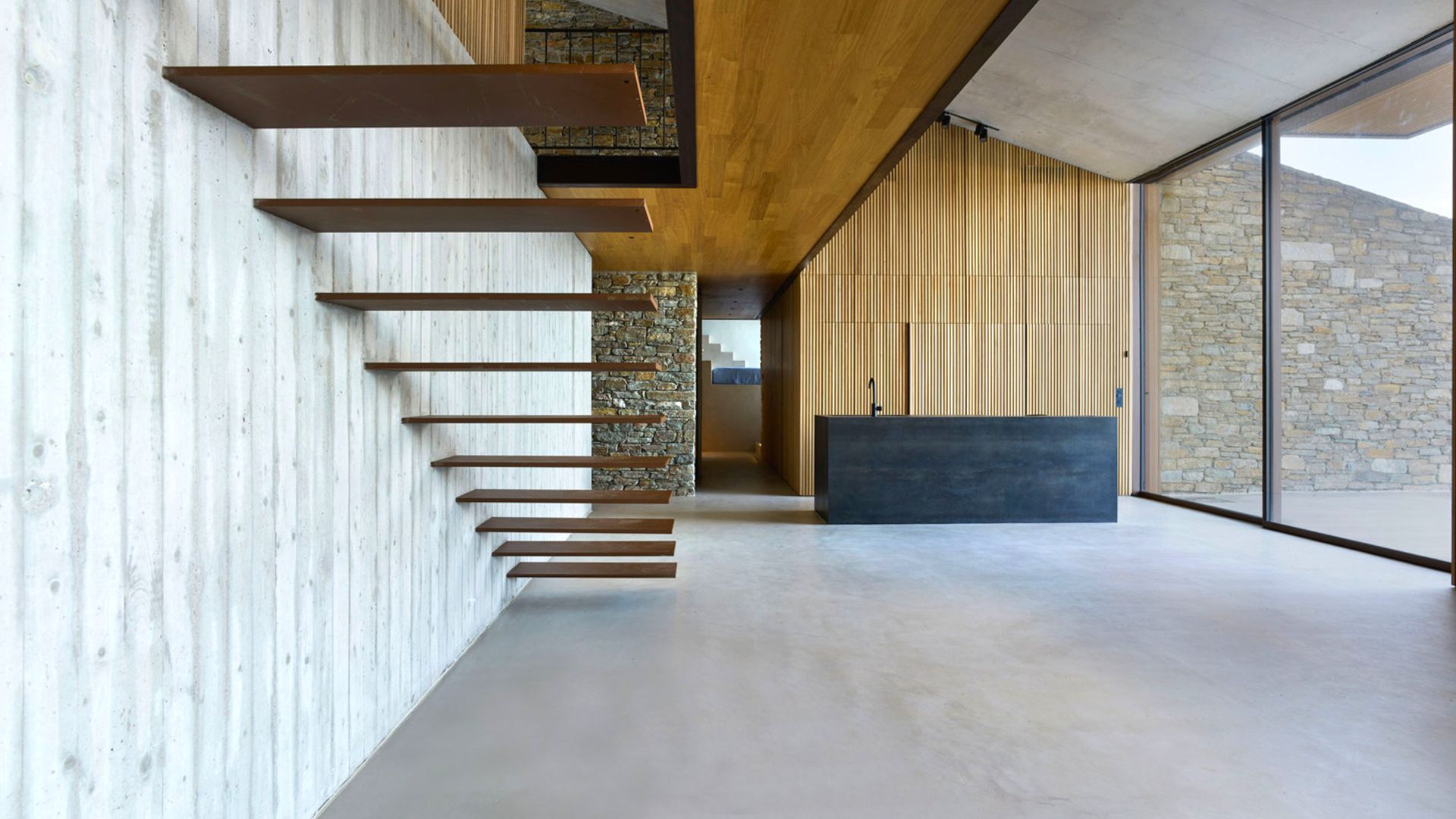How To Clean Your Polished Concrete Floor

One of the reasons polished concrete floors have always been in fashion is because of their durability.
Undoubtedly, polished concrete floors are an excellent option for commercial spaces with heavy footfall because of their high degree of resistance to damage.
In addition, polished concrete floors are relatively easy to take care of and are more affordable than tile floors.
However, that doesn’t mean you can do away with the complete care and maintenance process. When left on its own, polished concrete floor may lose its shine or show undesirable signs of damage.
That’s why we have created this guide to provide tips and tricks to keep the floors clean. Following them precisely will let you expand the lifespan of your polished concrete floor for several years.
So, without further ado, let’s get started on how to clean polished concrete floors!
What To Do While Cleaning A Polished Concrete Floor

A. Use Clean Mops
Cleaning your polished concrete floors with a wet mop once a week is excellent for deep cleaning. But, it would be best if you always used a clean mop and a bucket of warm water for this job. To make the work less tedious, think about using an automatic floor scrubber with non-abrasive pads for more extensive floors.
B. Choose A Neutral Cleaner That’s Able To Suspend Dust
The foremost reason for wet mopping a polished floor is to lift as much dirt as possible. That’s why you must pick a neutral polished floor-safe cleaner that is excellent at suspending dirt. Make sure to wash away the cleaner with enough water to avoid discolouring the polished surface.
C. Wipe Away Spills ASAP
Did somebody drop a soft drink on your saloon floor? Use a soft microfibre cloth to soak up as much of it as possible, and then wet mop the area. Letting spills sit on the floor for too long can damage and discolour the polish.
D. Let The Cleaning Solution Do Its Work
We know leaving the cleaning agent on a polished concrete floor can be scary. But, it must sit for a few minutes to break down the accumulated grease and dirt. Always mix the cleaning agent with water and apply it on the spot. Remember to wet mop the surface to get rid of all remnants of dirt and the cleaning agent.
Cleaning solutions should be applied in parts while using them so that the cleaning agent won’t dry on the floor, causing discolouration. Instead, it’s better to clean one area completely before moving on to the next so you can keep a closer eye on the cleaning agent.
What To Avoid While Cleaning A Polished Concrete Floor
A. Harsh Chemicals
Remember never to use bleach, vinegar, ammonia, or hydrochloric acid products on a polished concrete floor. We also don’t recommend using cleaners with either an acidic or alkaline pH as they may damage the shine of your floors.
B. Oil-Based Cleaning Solutions
While choosing a cleaning solution, pick one with a water-based formulation. It’s advised not to use oil-based solutions as they may sit on the floor to create additional layers that accumulate coarse dust particles, damaging the top surface.
C. Rubber Products
Even though rubber may seem safe for polished concrete floors, it’s not entirely true. Rubber can leave permanent marks on the surface, which is undesirable. So, try to use felt mats and floor protectors instead of rubber-based ones, as they don’t leave scratches.
D. Steam And Vacuum Cleaners
When cleaning floors in the home or business, using steam cleaners and vacuum cleaners is quite common since they tend to be quick and efficient. Still, they can be dangerous when it comes to polished concrete floors, so a floor scrubber with non-abrasive pads is recommended.
Maintenance Tips To Remember When Cleaning Polished Concrete Floors

1. Set A Regular Cleaning Schedule
Even though the thought of regular cleaning of the polished concrete floor isn’t that exciting, it’s essential to come up with a regular schedule based on daily foot traffic. Floors that tend to get too much traffic, like those in a shop or clinic, need to be cleaned frequently to avoid dust and debris.
On the other hand, polished concrete floors at home that are covered by carpets may need to be cleaned twice or thrice a week. Floors that get a lot of traffic should ideally be cleaned twice a day with a dry mop to remove all dust particles. We also recommend cleaning it with a wet microfibre mop once a week.
2. Use The Right Tools And Products
One of the common mistakes done by people is to clean polished concrete floors with products or tools that are too abrasive for the surface. It’s recommended to always use a microfibre mop for cleaning the floors, as any harsh materials may leave scratches on its top layers.
Though warm water is fine to clean a polished concrete floor, you may get a pH-neutral cleaning agent for the deep cleaning days. However, always remember to use it with water, or it may discolour the surface.
Polished concrete floors in a commercial setting can be cleaned using automatic floor scrubbers, which use non-abrasive pads. We recommend picking up pads that specifically are fit for sensitive and high gloss floors.
Keeping Your Polished Concrete Clean
No matter what concrete flooring you have, you must regularly clean it to keep it looking its best. You can maintain your flooring in good condition by following these guidelines without using products that can damage it over time.
If you see signs of damage or scratches on your polished concrete floor, it might be helpful to contact a local polished concrete expert. They are skilled at providing cost-effective services for rebuilding or fixing damaged concrete floors using the latest gadgets and tools.
Until next time, goodbye, and take care!
Newsletter
Sign up to our flooring, epoxy and concrete blog newsletter and get all the latest news, tips and tricks from the industries best in Sydney.
Related Articles

Can You Use Polished Concrete In A Commercial Kitchen?
Need a highly durable and attractive material for a commercial kitchen? Read on to see why polished concrete might be what you’re looking for!

How Long Does Polished Concrete Flooring Last?
Do you want to know how long your polished concrete flooring will last? Well, read our guide on how long your concrete finish will last if maintained correctly.

Epoxy vs. Polished Concrete Flooring
Still trying to decide on the perfect flooring option for your property? Let us help you in our guide where we compare our two most popular concrete flooring solutions.